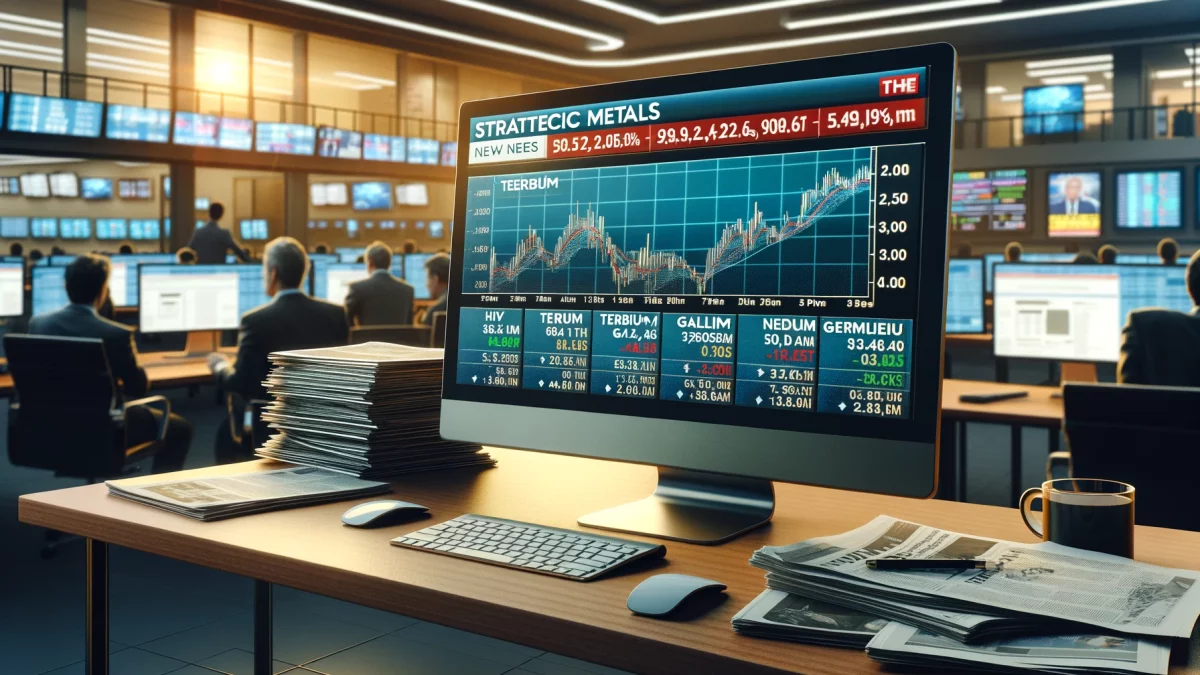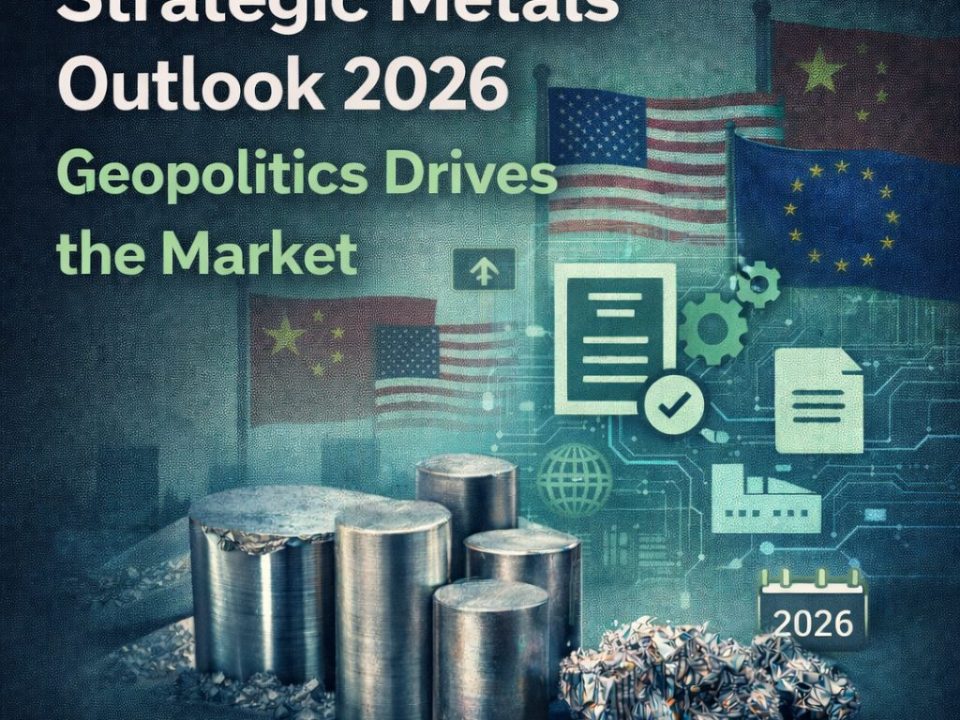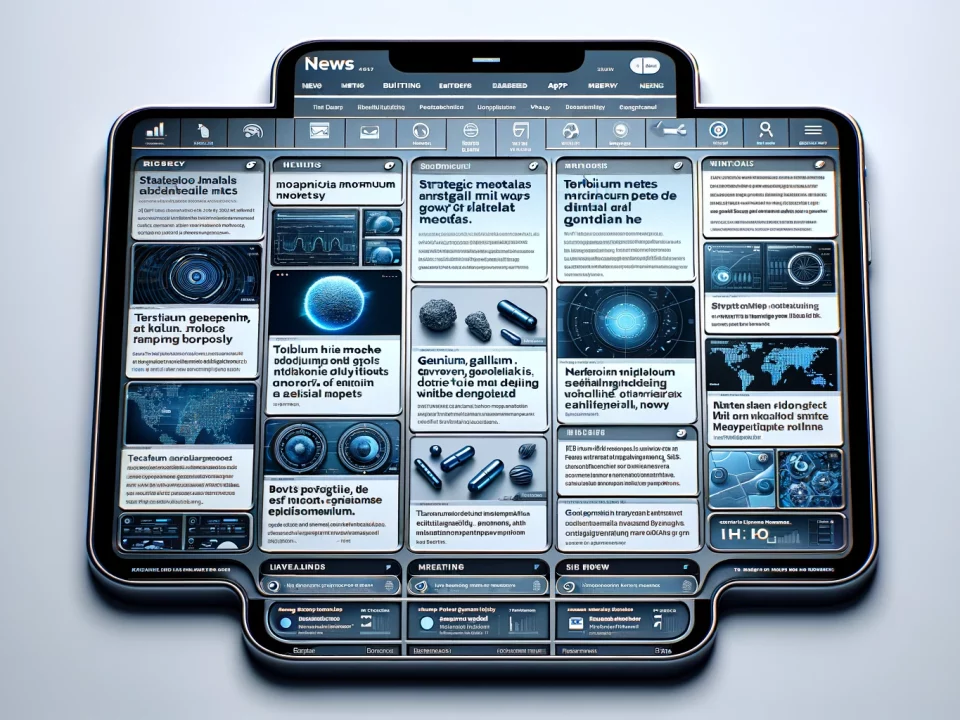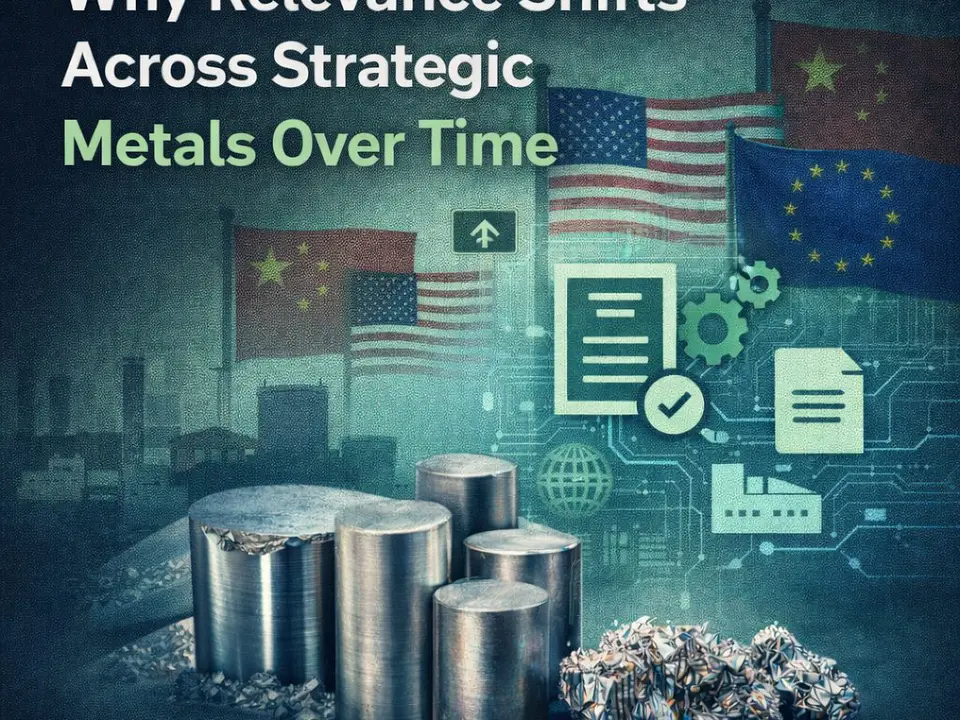
Weekly News Review Apr 29 – May 5 2024
May 5, 2024
Weekly News Review May 13 – May 19 2024
May 18, 2024Welcome to our weekly news review.
WHITE HOUSE ADVISOR URGES MORE INVESTMENT IN STRATEGIC METALS PROJECTS:
According to Amos Hochstein, energy transition is impossible without resources from nations like Zambia or Chile.
Amos Hochstein, senior advisor to President Joe Biden for energy and investment, said Monday that the United States and its allies must invest in nations that host the resources to secure the supply of critical minerals for Energy transition and other high-tech fields.
In a Milken Institute in Los Angeles panel, Hochstein discussed global supply chains of raw materials and emphasized that global energy transition efforts would be impossible without the critical minerals from countries like Chile, Peru, or the Democratic Republic of the Congo. While he urged Western nations to increase incentives for domestic mining and processing projects, he stressed that they have few deposits, which are also often inaccessible.
Hochstein added that projects such as the Inflation Reduction Act unlocked vast funding for domestic projects, and similar efforts are now needed in resource-rich nations.
WESTERN FINANCE MUST WORK TOGETHER –
The White House advisor conceded that certain risks are associated with investments in developing and emerging nations, so “Western finance” would be reluctant to participate. While he did not specify these risks, Hochstein advocated global organizations, such as the World Bank and the International Monetary Fund (IMF), and regional development banks, such as the U.S. International Development Finance Corporation and German KfW, to join forces and unlock necessary funds for projects in developing nations regardless to secure a secure and reliable supply of critical minerals.
Hochstein added that to compete with Chinese investment offers, Western finance must offer the countries improvements to their communities and quality of life in return.
ALREADY ON THE AGENDA:
The World Bank has already started an initiative to assist developing and emerging countries more closely in producing green energy and the raw materials required.
The recently formed Resilient and Inclusive Supply-Chain Enhancement (RISE) project is intended to reduce dependence on imports from raw materials giant China and simultaneously counter the investments made by the People’s Republic in numerous developing and emerging countries. In addition, the German KfW (Credit Institute for Reconstruction), Hochstein mentioned as an example of a regional developing bank, will be allocated one billion euros to finance raw material projects.
CRITICAL RAW MATERIALS: GERMAN FOREIGN MINISTER ADVOCATES DIRECT TRADE WITH AUSTRALIA –
Resources such as lithium are shipped to China for processing before arriving in Germany.
During her state visit to Australia, German Foreign Minister Annalena Baerbock spoke out in favor of direct trade in critical raw materials such as lithium. In an interview with ABC News, she said the battery metal would be shipped from Australia to China for further processing and then imported to Germany. Germany’s capacities for refining lithium are currently under construction.
The Minister also explained the German guidelines for dealing with China’s growing influence, not only in critical resources. The aim is not to decouple from the People’s Republic, but a similar dependence on Russian gas in the past must be prevented. Baerbock continued that the diversification of supply chains would also strengthen relations between democracies and free markets.
Closer cooperation with resource-rich Australia is also emerging at the EU level. In April, it was reported that a strategic partnership for critical minerals could soon be signed.
AUSTRALIA TO SPEND $373 MILLION ON RESOURCES:
It will focus on critical minerals and map iron ore and gold deposits.
Australia is stepping up efforts to bolster its position as a global leader in mining with a $373 million (A$566 million) funding boost for resource exploration. Prime Minister Anthony Albanese announced the finance in a speech on Wednesday.
Over the coming decade, the government agency Geoscience Australia will focus on mapping new deposits of critical minerals and search for traditional raw materials like iron ore or gold.
The Australian Government recently unveiled the Future Made in Australia Act, which aims to strengthen domestic manufacturing and promote key industries such as clean energy and critical mineral mining and processing. The funding, which has now been announced, will accompany the act to supply critical minerals such as lithium for batteries or rare earths for electric vehicles or wind turbines.
In his speech, Albanese also addressed the Critical Raw Materials Act, under which the European Union sets a maximum quota of imports per strategic raw material from single countries of 65 percent. “That’s a market open to us,” Albanese said, adding that Australia is a trusted trading partner and could become an alternative to industry leader China, from which the EU currently imports a swath of critical minerals.
US DEPT OF ENERGY: RESEARCHERS EMPLOY ROBOTS IN WIND TURBINE BLADE MANUFACTURING –
Automation in clean energy manufacturing could reduce costs and increase competitiveness.
Researchers at the National Renewable Energy Laboratory (NREL), a U.S. Department of Energy research facility, have successfully used robots to construct wind turbine blades.
In a paper published in the journal Wind Energy, the team from NREL outlined the benefits of employing automation in the field as cost-saving, more efficient, and increased worker safety. Robots would work faster, are more precise, and use the materials such as sanding pads for post-molding steps more efficiently, leading to an overall cost reduction. This could give companies using automation an edge by reducing prices compared to competitors.
In addition, the researchers utilized robots in areas where humans would otherwise have to use respirators, such as sanding, or work at heights, such as on scaffolding. The researchers argue that eliminating human labor could help increase worker safety in the supply chain of wind turbines. To find applicable areas, the team built a 3D model of a wind turbine blade by compiling a series of scans. The model was then used to help program and adjust the robot.
CHINA CURRENTLY LEADS THE GLOBE IN AUTOMATION:
The most well-known field in which automation is employed is the automotive industry. With recently reaching a milestone of one million active units, this sector hosts roughly one-third of all operating robots across all industries, according to a report from the International Federation of Robotics (IFR).
According to IFR, China is the largest market for robots, importing most units from Europe, Japan, and Korea. In 2021, the People’s Republic announced a five-year development plan to ramp up its production and increase adoption across its industries.
CHINA’S EXPORTS OF RARE EARTHS SLIGHTLY DOWN IN APRIL:
Rare earth exports from China declined marginally in April, falling by 0.2 percent compared to the previous year. This was reported by The Economic Times, among others, citing data from the Chinese customs administration. In total, exports of critical minerals amounted to 4,566 tons last month; in April 2023, the figure was 4,574 tons.
In March, exports had increased by almost six percent year-on-year to around 4,710 tonnes (we reported).
According to Reuters, the other data on imports and exports from the People’s Republic were positive, indicating increased demand at home and abroad. Beijing’s numerous political support measures in recent times have also helped to stabilize the economic situation. However, analysts expressed skepticism as to whether the upturn was sustainable.






